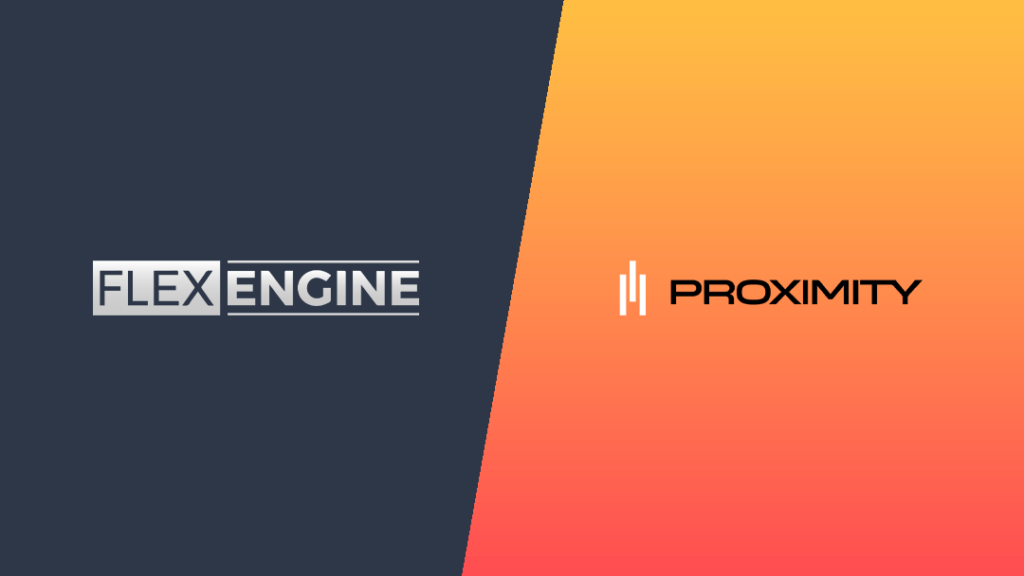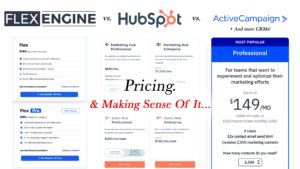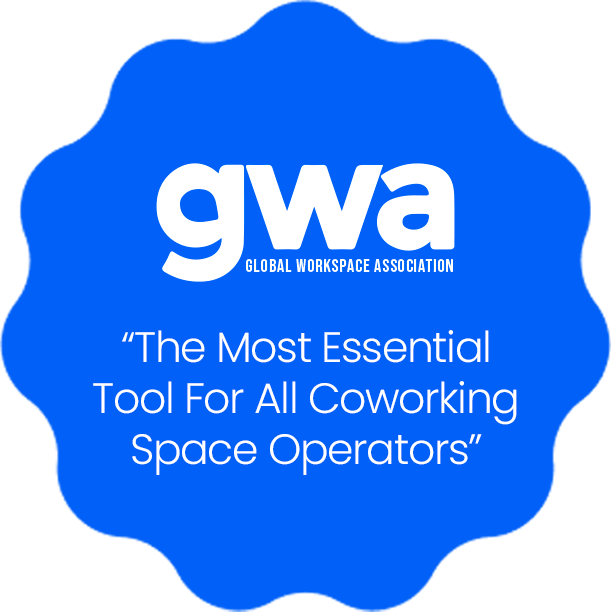As the demand for flexible workspaces continues to rise, coworking space operators find themselves navigating a sea of software solutions designed to streamline operations, enhance member experience, and drive business growth. Among the notable players in the coworking software landscape are Flex Engine and Proximity. In this blog post, we’ll conduct a fair and comprehensive comparison of their features to help coworking space managers make an informed decision. Flex Engine and Proximity are two popular software providers in the coworking industry. Both offer a range of features designed to streamline operations and enhance the coworking experience, but they approach it in different ways.
Flex Engine stands out for its flexibility and customization options. It allows coworking space managers to tailor the software to their specific needs, whether it’s managing memberships, booking meeting rooms, or tracking usage data. The software is highly user-friendly and offers seamless integration with third-party applications, making it a versatile tool for any coworking space.
On the other hand, Proximity focuses on creating a seamless and integrated coworking experience. Its standout feature is the mobile app, which allows users to easily book workstations, reserve meeting rooms, and connect with other members. Proximity also offers advanced analytics and reporting tools, giving coworking space managers valuable insights into member behavior and space utilization.
When it comes to pricing, both Flex Engine and Proximity offer affordable options depending on the scale of the coworking space. Flex Engine offers tiered pricing plans based on the number of members, while Proximity offers a flat fee per member. Ultimately, the choice between the two will depend on the specific needs and budget of the coworking space.
In conclusion, Flex Engine and Proximity are both powerful software solutions for coworking spaces. While Flex Engine offers flexibility and customization, Proximity focuses on creating an integrated member experience. Coworking space managers should evaluate their needs and budgets to determine which software aligns best with their goals.
Flex Engine Features:
CRM Capabilities:
Flex Engine boasts a robust Customer Relationship Management (CRM) system, providing detailed scorecards, funnel and stage distribution, and lead source reports. It ensures efficient lead management, lead tracking, and conversion rate optimization. CRM (Customer Relationship Management) systems are a crucial tool for businesses looking to streamline their customer interactions and drive revenue growth. With a myriad of capabilities, these systems provide valuable insights and analytics to help companies make informed business decisions.
Another critical aspect of CRM capabilities is the ability to track leads throughout the sales pipeline. CRM systems enable businesses to keep a close eye on their leads, ensuring they stay engaged and move through the various stages of the sales process. This feature helps sales teams focus their efforts on actively nurturing leads and identifying the most promising opportunities. By monitoring lead progression, businesses can identify any bottlenecks or issues that may be preventing leads from converting, allowing them to implement targeted strategies to improve their conversion rates.
CRM systems also provide lead source reports, enabling companies to determine which marketing efforts are driving the most leads. By identifying the most successful lead sources, businesses can allocate their marketing resources more effectively, focusing on activities that generate the highest quality leads. This data-driven approach helps optimize marketing strategies and maximize return on investment.
Powerful Communication Tools:
With a built-in power dialer, manual actions for phone calls and text messages, and a universal inbox, Flex Engine ensures that communication with leads and members is seamless. The phone widget allows outbound calls directly from the CRM, and real-time notifications keep users informed.
Powerful communication tools are essential for any business or organization. In today’s fast-paced world, it is crucial to have efficient and effective ways to connect with leads and members. One such tool is an inbox that centralizes all communication channels in one place. This not only saves time but also ensures that important messages are not overlooked or lost in the clutter.
Another powerful communication tool is the Flex Engine. It enables seamless communication by integrating various channels such as email, SMS, and social media. With the Flex Engine, businesses can reach out to their leads and members in a personalized and targeted manner. This tool also allows for outbound calls directly from the CRM, making it even more convenient and efficient to connect with people.
Real-time notifications are yet another vital feature of powerful communication tools. These notifications keep users informed about important updates, ensuring that no message goes unnoticed. Whether it be a new lead inquiry, a member request, or a customer support ticket, real-time notifications enable prompt responses and smooth communication.
Comprehensive Calendar Functionality:
Flex Engine’s calendar features go beyond basic scheduling. It offers various calendar types, including simple calendars, round-robin calendars, and class booking calendars. Integration with Google, Outlook, and iCloud enables easy synchronization, while the GMB/GBP Booking Link allows direct bookings from search. When it comes to comprehensive calendar functionality, there are a few key features that can greatly enhance your scheduling and booking experience. One such feature is round-robin calendars, which allocate appointments or meetings among multiple team members fairly and efficiently. This ensures that everyone’s workload is balanced and that appointments are evenly distributed.
Another useful type of calendar functionality is class booking calendars. These calendars allow individuals to easily sign up for classes, workshops, or group sessions. With just a few clicks, users can find available time slots, register for the class, and receive confirmation details – making the booking process seamless and hassle-free.
Integration with popular calendar platforms such as Google, Outlook, and iCloud is another essential aspect of comprehensive calendar functionality. This synchronization capability allows users to access and manage their schedules across different devices and platforms. Whether you prefer using your smartphone, tablet, or desktop computer, you can stay organized and up-to-date with ease.
Lastly, the integration of a GMB/GBP Booking Link provides the convenience of direct bookings from search. When potential clients or customers come across your business listing on platforms like Google My Business or Google Business Profile, they can simply click on the booking link to schedule an appointment or make a reservation. This saves valuable time and increases the likelihood of turning leads into customers.
Automation and Workflow Builder:
The workflow builder in Flex Engine provides over 55 triggers and 70 actions, allowing for customized automation across marketing, sales, and operations. It streamlines processes, saving time and ensuring consistency. Automation has become a crucial aspect of modern businesses, and with advancements in technology, it has become easier than ever to streamline processes and increase efficiency. Flex Engine is one such tool that offers a comprehensive automation and workflow builder solution. With over 55 triggers and 70 actions, it allows businesses to create customized automation across various departments such as marketing, sales, and operations.
The key benefit of using automation and workflow builder like Flex Engine is the ability to save time. Instead of manually performing repetitive tasks, the automation tool can take care of them automatically. This frees up valuable time for employees to focus on more important tasks that require their creativity and problem-solving skills. By automating tasks, businesses can also ensure consistency in their processes, as there is no room for human error or forgetfulness.
Flex Engine’s extensive range of triggers and actions allows for endless possibilities when it comes to automation. Whether it’s sending personalized emails to customers, automatically updating customer information, or generating reports, Flex Engine has got it covered. Businesses can customize the automation to suit their unique needs and workflows, creating a seamless and efficient system that aligns with their objectives.
Social Media Management:
Flex Engine goes beyond coworking essentials by offering social media posting, content calendar planning, and automatic posting of reviews. It facilitates a cohesive online presence, engaging with the community and attracting new leads. Social media has become an essential tool for businesses to connect with their target audience and build their brand presence. However, managing multiple social media platforms can be overwhelming and time-consuming. That’s where social media management comes in.
Social media management involves a range of services that help businesses effectively handle their social media accounts. This typically includes tasks such as creating and scheduling posts, monitoring and responding to engagement, and analyzing performance metrics. By outsourcing these responsibilities to a social media management service, businesses can focus on other core aspects of their operations.
One key benefit of social media management is the ability to maintain a consistent and cohesive online presence. With a team of experts handling your social media accounts, you can ensure that your brand messaging, tone, and visual elements remain consistent across all platforms. This fosters brand recognition and helps build trust with your audience.
Email Campaigns and Automation:
The email campaign builder in Flex Engine is equipped with features such as batching, scheduling, A/B testing, and affiliate links. It ensures effective communication with leads and members, coupled with AI-powered text generation for faster content creation. Email campaigns have become an essential tool for businesses to engage with their customers and drive sales. However, managing and executing these campaigns manually can be a time-consuming and tedious process. This is where email automation comes into play.
Automation allows businesses to streamline their email campaigns by utilizing various features such as batching, scheduling, A/B testing, and affiliate links. Batching enables you to send emails to a targeted group of recipients at once, saving you the hassle of individually sending out each email. Scheduling allows you to set a specific date and time for your emails to be delivered, ensuring they reach your customers at the optimal moment.
A/B testing is another powerful feature of email automation that enables you to test different variations of your email content and subject lines to see which performs better. By analyzing the results, you can optimize your campaigns and increase their effectiveness. Additionally, automation allows you to implement affiliate links in your emails, which can generate additional revenue by earning you a commission for each sale made through those links.
Furthermore, email automation can be enhanced by integrating artificial intelligence (AI) technology. AI-powered text generation tools can help businesses speed up content creation by providing suggestions and generating personalized content based on customer data. This not only saves time but also ensures that your emails are tailored to the specific interests and preferences of your recipients, leading to higher engagement rates.
AI Integration:
The inclusion of conversation AI sets Flex Engine apart, enabling AI-powered appointment booking, FAQ answering, and more. Its training features and AI text/image generation capabilities enhance overall efficiency. Artificial intelligence (AI) has revolutionized countless industries, and its integration into various aspects of our daily lives continues to expand. One area where AI is making significant strides is in conversation-based AI platforms, such as Flex Engine. By harnessing the power of AI, Flex Engine offers a range of capabilities, including AI-powered appointment booking and FAQ answering. These features not only streamline processes but also enhance efficiency across different sectors.
One of the key highlights of Flex Engine is its training features, which enable businesses to design AI models that learn and adapt over time. This flexibility ensures that the AI system can keep up with the evolving needs of the users and provide improved responses and solutions. Moreover, Flex Engine’s AI text and image generation capabilities take efficiency to the next level. By generating high-quality content, text, and even images, it reduces the time and effort required from human resources, freeing them up for more strategic tasks.
The integration of AI in conversation-based platforms like Flex Engine holds immense potential for businesses of all sizes. With AI-powered appointment booking, companies can automate and optimize their scheduling processes, saving time and minimizing errors. Additionally, FAQ answering powered by AI ensures that users and customers receive prompt and accurate responses to their queries. This not only enhances customer satisfaction but also reduces the workload on customer service teams. The efficiency gains brought by AI integration have a direct impact on both the bottom line and customer experience.
Proximity Features:
Member Portal and Collaboration:
Proximity excels in creating a member-centric experience with its member portal, allowing users to access announcements, chat, and affiliate information. The emphasis on collaboration fosters a sense of community among members. The advent of member portals has revolutionized the way organizations connect and engage with their members. These portals offer a member-centric experience, providing users with easy access to a wealth of information and resources. One of the key features of these portals is the ability to access announcements, ensuring members stay informed about the latest news and updates.
Another significant aspect of member portals is the integration of chat functionalities. This allows members to communicate and collaborate, fostering a sense of community within the organization. Whether it’s discussing ideas, sharing experiences, or seeking advice, the chat feature enhances collaboration and enables members to connect on a deeper level.
Additionally, member portals provide access to affiliate information and resources. This is particularly beneficial for organizations with multiple affiliates, as it streamlines communication and ensures that all members have access to the same information. By centralizing these resources, member portals promote consistency and provide a seamless experience for all users.
Overall, member portals have become indispensable tools for organizations looking to enhance member engagement and foster collaboration. By creating a member-centric experience and offering features such as announcements, chat, and affiliate information, these portals strengthen the sense of community among members and pave the way for greater collaboration and productivity.
White-Labeling and Branding:
Proximity offers white-labeling options for a more branded experience. This feature allows coworking spaces to reinforce their identity and maintain a consistent brand image. White-labeling is a strategy that allows companies to rebrand products or services with their logo and design, giving it a unique and personalized touch. Coworking spaces, in particular, can benefit greatly from white-labeling as it helps them differentiate themselves in the market and stand out among their competitors.
By white-labeling their offerings, coworking spaces can reinforce their brand identity and create a more cohesive experience for their members. From customized website designs to personalized marketing materials, the possibilities are endless. This ensures that every touchpoint with their workspace reflects their brand, creating a strong and memorable impression on their target audience.
Furthermore, white-labeling allows coworking spaces to maintain consistency in their brand image across all platforms. Whether it’s their website, mobile app, or physical space, the branding elements remain the same, providing a seamless experience for their members. This consistency builds trust and loyalty among clients, who can easily recognize and associate with the coworking space’s brand.
Form and Survey Building:
The visual form and survey builders in Proximity enable the creation of engaging forms and interactive surveys. Conditional logic ensures customization based on user responses, providing valuable insights. With the advancements in technology, form and survey building has become easier than ever. Proximity, a leading platform, offers powerful tools that allow users to create engaging forms and interactive surveys. This opens up a world of possibilities for businesses and individuals alike.
One of the key features of Proximity’s form and survey builders is conditional logic. This feature allows for customization based on user responses. Depending on how respondents answer a question, the form or survey can dynamically change, presenting different follow-up questions or skipping irrelevant ones. This not only enhances the user experience but also provides valuable insights for data analysis.
Proximity’s form and survey builders also offer various design options to make forms visually appealing. Users can choose from pre-built templates or create their own designs using customization features. This flexibility allows businesses to maintain their branding while collecting necessary information from their customers or clients.
Moreover, Proximity ensures security and data privacy in form and survey building. With options to add CAPTCHA or password protections, users can gather information without worrying about spam responses or unauthorized access. This level of security is crucial in building trust with respondents and protecting sensitive data.
E-commerce and Storefronts:
Proximity stands out with its dedicated storefronts and blogs. The inclusion of e-commerce features allows coworking spaces to sell products and services seamlessly through the platform. With the rapid growth of e-commerce, storefronts have become essential for businesses to thrive in the digital era. E-commerce platforms provide unparalleled convenience for both the sellers and the buyers. Customers can explore a wide range of products and make purchases from the comfort of their own homes, while businesses can tap into a global market without the limitations of physical store locations.
However, traditional brick-and-mortar stores still hold a unique charm and provide a personalized shopping experience that cannot be replicated online. This is where the concept of dedicated storefronts comes into play. With dedicated storefronts, businesses can have the best of both worlds. They can maintain their physical presence and interact directly with customers, while also taking advantage of the benefits of e-commerce.
One standout platform that offers dedicated storefronts and combines them with e-commerce capabilities is Proximity. This innovative platform allows coworking spaces to sell products and services seamlessly through their dedicated storefronts. This means that coworking spaces not only provide workspaces for individuals and businesses, but they can also showcase and sell products related to their niche, such as office supplies, networking events, or even merchandise.
By integrating e-commerce features into their dedicated storefronts, coworking spaces can expand their revenue streams and make the most of their existing customer base. Customers who already enjoy working in these spaces can now conveniently purchase the products and services they need without having to look elsewhere. This creates a synergistic relationship that benefits both the coworking spaces and their customers.
Course Management and Certificates:
Proximity’s course builder and certificate administration features are tailored for spaces offering digital training. The inclusion of quizzes and assessments enhances the learning experience for members. Managing courses and certificates is an essential aspect in the world of online learning. With the rise of digital training platforms, it is crucial to have course management and certificate administration features that are specifically designed for this purpose.
One of the key elements of effective course management is the ability to create and organize courses in a user-friendly manner. Course builders allow instructors to easily develop course content, arrange modules, and upload multimedia materials. This streamlined process makes it easier for instructors to deliver engaging content to their learners.
Additionally, incorporating quizzes and assessments within courses enhances the learning experience. Quizzes allow learners to assess their understanding of the material, while assessments measure their overall knowledge and skills. These interactive activities not only help learners reinforce their learning but also provide valuable feedback to instructors, enabling them to identify areas where learners may need additional support.
Certificates are equally important as they provide recognition and validation of a learner’s achievements. With certificate administration features, instructors can easily generate and issue certificates to learners who have successfully completed a course. These certificates serve as proof of completion and can be shared on professional networks or included in resumes, enhancing an individual’s credibility and marketability.
In conclusion, course management and certificate administration features are essential for spaces offering digital training. The ability to create and organize courses efficiently, as well as incorporate quizzes and assessments, greatly enhances the learning experience for members. Furthermore, properly issued certificates recognize learners’ achievements and boost their professional credibility. As the world of online learning continues to grow, it is crucial to have robust course management and certificate administration systems in place to support effective education and training.
Conclusion:
Both Flex Engine and Proximity offer a plethora of features designed to meet the diverse needs of coworking space operators. Flex Engine shines in CRM capabilities, communication tools, and automation, providing an extensive set of tools for managing leads and streamlining operations. On the other hand, Proximity excels in member-centric features, branding options, and e-commerce functionalities.
The choice between Flex Engine and Proximity ultimately depends on the specific priorities and requirements of a coworking space. Operators should carefully evaluate their needs, considering factors such as member engagement, branding, and operational efficiency when making a decision.
Furthermore, operators of coworking spaces should also carefully evaluate their requirements. Member engagement is key to the success of any coworking space, so it is important to create a vibrant and inclusive community that encourages interaction and collaboration. Additionally, branding plays a significant role in attracting potential members and setting the space apart from its competition.
Operational efficiency is another critical factor to consider. From administrative tasks to technological infrastructure, ensuring the space operates smoothly and efficiently can improve the experience for members and help the business succeed in the long run.





